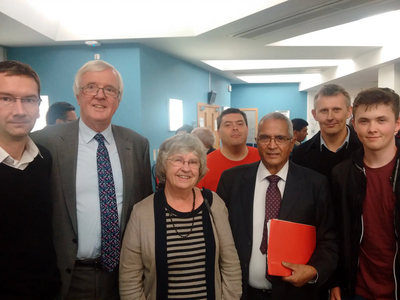Counting overseas students as part of net migration figures is a mistake

The north-east's international revenue amounted to £244 million in 2011-12. This, together with the estimated £213 million off-campus expenditure of international students, represented a total in export earnings of £457 million at that time. It is estimated that this figure today amounts to some £600 million-and those international students sustain several thousand jobs across the regionIn the north-east of England (according to the 2014 Universities UK report on the economic impact of universities) At the universities of Durham, Newcastle, Northumbria and Sunderland combined, there are more than 12,000 non-EU students from more than 100 countries, all of whom make a valuable contribution to university and city life.
There is an underlying conflict in Tory government policy. There was a commitment in the November 2015 spending review to expand international student numbers, and a target of reaching a £30 billion education export figure for non-EU students by 2020. A crucial sentence from the spending review states:
"The number of students from outside the EU at English universities is expected to rise by 55,000, worth more than £1 billion, by 2020".
There is no sign of this being achieved. It would require around 20% growth when, currently, numbers are broadly static. But the Government also have a target to reduce net migration to the tens of thousands from the current 300,000, counting students as part of the total number. They should cease to count them. Tuition fee income from non-EU students makes up 13% of all income for higher education institutions and 29% of all tuition fee income, even though overseas students represent only 14% of all students.
Our country has justifiably earned a reputation as a destination of choice for international students. We have been the second most attractive destination after the USA, with 10.3% of all international students worldwide. We risk losing that reputation through illogical constraints on the issuing of visas. Already, since 2010, some 875 bogus colleges have had their licences to bring international students to the UK revoked. That must be a huge help in achieving the Government's objectives and should not be used to restrict responsible universities from maximising their recruitment overseas when it is in our national interest that they do so.
Britain's approach is not understood and it is damaging our reputation. It is also damaging the future potential growth of our economy because, in addition to our international graduates acting as ambassadors for the UK and the universities from which they graduate, those who stay create businesses or may work in shortage areas. We need them to succeed if our economy is to thrive post-Brexit. We also need to recognise that the viability of courses for UK students may be in question if overseas student fees are not underpinning them financially. Overseas students sustain many strategically important courses: for example, 28% of engineering and technology undergraduates and 18% of mathematics undergraduates are international students.
This is an edited version of a speech to the House of Lords by John Shipley, pictured recently at the University of Northumbria with Liberal Democrat peer Lord Dholakia and others
